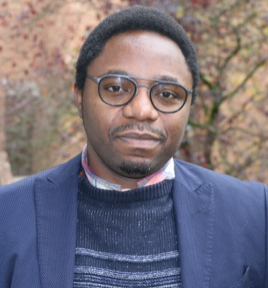Can Silent Voices Speak? When Power Relationships Govern the Conditions of Expression

Aymar Nyenyezi Bisoka
For several years now, the range and depth of thinking concerning the decolonisation of knowledge production in the academic world has been enhanced. Some researchers reject the concept of “decolonisation”, or its substance. Others accept its relevance but often limit themselves to a simplistic understanding of its historical legacy, conceptual depth, and practical implications. Furthermore, very few academics are conscious of the fact that the decolonisation of knowledge production involves them personally. As a result, few initiatives from academics go beyond conversation, stopping short of examining and reorganising – to the extent possible – the power relationships that characterise knowledge production. The bias in terms of power relations is even more prevalent in relationships between autonomous researchers, often from the Global North, and their research assistants from the South. The Bukavu Series is one of the rare and commendable initiatives that seeks to “give a voice” to research assistants in the process of the decolonisation of knowledge production.
The question remains, however, to what extent initiatives like the Bukavu Series really give a voice to research assistants from the South. Can silent voices really speak while power relationships continue to govern the conditions of their expression? In order to advance the debate and develop new practices, critical questioning concerning the inherent contradictions within the process of knowledge production is needed. Such a point of view doesn’t call into question the relevance of an initiative such as the Bukavu Series. Quite the contrary. We’re simply arguing that its coordinators – myself included – should continue to reflect on the power relationships that are embedded in the Bukavu Series dynamics, and that continue to contribute to the partial invisibility of research assistants. We will develop this argument by analysing the subordination, precarity, vulnerability, and challenges in giving visibility to the research assistants in the Bukavu Series.
First, the Bukavu Series aims to give space to research assistants, these voices that often remain invisible in the production of knowledge (see the introduction to the series). Such a statement demonstrates the awareness of the importance to make all researchers in the research chain visible. However, research assistants remain stuck in a subordinate role for two reasons. On the one hand, they’re brought into projects by senior researchers and through funding that predominantly originates from the North. Although the collaboration dynamics are cordial, assistants are still constrained to being the “hand that receives and thus under the one who gives” and therefore directs the process. On the other hand, research assistants are considered young people in need of “capacity building”. This subordinate position both subjugates and depoliticises research assistants.
Second, their subordination is reinforced by their insecure situation. Most of these assistants, dynamic as they are, live in a Congolese context where more than 80% of young graduates like them lack employment. Certainly, several research assistants work at a university, but they’re often poorly paid. Others are unemployed, despite their passion for research. They find it difficult to survive. In the research enterprise, some hope to be able to make a decent living as professional researchers. Others hope to gain access to opportunities that allow them to move forward in their careers. But often resources for realising those ambitions are lacking.
Third, precarity results in vulnerability. Research assistants’ abilities are not capitalised on and their needs are not met by projects that truly respond to their expectations. Nevertheless, research assistants remain dependent upon these projects – often coming from the North – which offer modalities upon which the survival of assistants depends. Assistants don’t control the research processes within which some envision their career while others see them as a means of survival. Assistants’ dependency further reinforces subordination, as they lack control over their own career path.
Fourth, research assistants move in and out of research depending upon the duration of projects, the willingness of senior researchers to include them, or the precarity in which they find themselves, forcing them to look for opportunities elsewhere. How can the visibility of research assistants be increased when circumstances force them to withdraw from the research project or exist on its periphery? What happens if their passage from project to project, topic to topic – depending upon opportunities proposed by a third party – limits time and energy to engage more thoroughly in research processes that really interest them? Indeed, those who can truly make themselves visible as “experts” are often senior researchers with sustained employment and sufficiently settled in their careers. Giving visibility to research assistants remains a difficult endeavour.
All of this implies that research assistants have no agency. Even when embedded in unbalanced power relations, research assistants are aware of their positionality. And they don’t hesitate to strategically navigate within those power relationships in order to promote and reinforce their own interests.
But it’s still crucial to recognise the different positionalities of the various partners involved in the chain of knowledge production, and to be aware of the unequal vulnerability amongst colleagues in order to acknowledge the constraints in our discussions and actions. In fact, making sure that the voices of research assistants are heard also implies thinking about the conditions under which assistants may gain true visibility, and to call into question the structural biases that define power relationships. Such an ambition imposes a form of reflexivity that never ceases to question the power relationships that govern the conditions of expression for those researchers whose voice is silenced.



